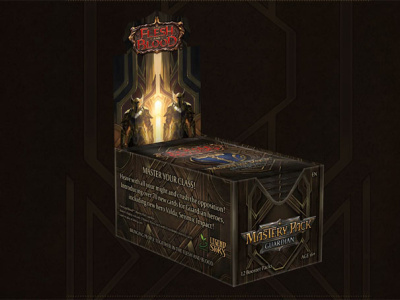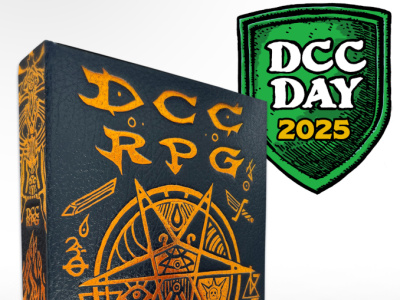Rolling for Initiative is a weekly column by Scott Thorne, PhD, owner of Castle Perilous Games & Books in Carbondale, Illinois and instructor in marketing at Southeast Missouri State University. This week, Thorne looks at the pace of board game releases and what it means for the business.
Last week’s interview with Asmodee NA CEO Christian Petersen and CMO Steven Horvath (see "ICv2 Interview: Asmodee Execs on the State of the Market, Part 1") covered a lot ground, but I found this bit especially interesting:
"But I have read and heard some retailers say that there were close to, at times, up to 80 new releases a week. It's obviously not small. These aren't like comic books that just take up a tiny bit of space and you can put in the penny bin later. Board games are a much more significant investment for the retailer in treasure and space."
This figure likely includes games going through regular distribution as well as those going through the Kickstarter funding process. When I flipped through current issues of Game Trade Monthly and Meeple Monthly, I found between 75 and 100 different board game titles releasing over the course of a month and, of course, neither magazine lists those games getting released directly to consumers via Kickstarter. Stores get asked weekly, if not daily, if they have a particular game, have expansions for a particular game or are going to get in a particular game in stock. As the average price point of a game has crept upward, it has gotten harder for game stores and distributors to stock "everything" given limited amounts of shelf space and capital. Online retailers like Amazon do not have the concern of having a customer-friendly space and can locate in much less desirable and less costly locations, freeing up more cash to stock in more items.
We have also moved to what I have called in the past a "fire and forget" model, especially via Kickstarter and other crowdsourcing platforms. Manufacturers solicit funds to produce a game, produce what is ordered by their backers with maybe some extra to go into distribution but, instead of using the funds to develop a production channel to keep the game in stock, take the money and move onto the next project. Many of the 80 games a week released will never see a second production run as their developers move on to the next cool idea they have decided to see funding for and produce.
What this means is that today we see a lot of creativity unleashed that we never would have seen under the old model, when publishers had to foot the bill for their production runs and took a heck of a risk if the game did not sell. Over the years, I, and other stores, have picked up cases of games for the cost of shipping or shipping plus a token amount because the publisher had underestimated customer demand and desperately needed to liquidate backstock in order to save storage costs. One bad production decision could mean thousands of dollars tied up in unsalable inventory. In the crowdfunding era, the publisher can shift the risk to the customer. If not enough customers invest in the game, it doesn’t get produced. Ergo, once the guaranteed demand gets satisfied, distributors and retailers take the risk that there is enough demand for a crowdfunded game to justify stocking it. This is why retailers and distributors prefer games from companies that do not fund through crowdsourcing as those games launch on a level playing field, instead of getting copies weeks or months after the pledgers receive theirs.
Today’s model makes it possible for more games than ever to release, possibly more than the market can absorb.
The opinions expressed in this column are solely those of the writer, and do not necessarily reflect the views of the editorial staff of ICv2.com.

Column by Scott Thorne
Posted by Scott Thorne on December 11, 2017 @ 12:50 am CT
MORE GAMES
Shop Talk, July 2025
July 25, 2025
All this and more in this month's edition of Shop Talk, our roundup of retailer news.
Supplementary Booster Set for the Guardian Class
July 25, 2025
Legend Story Studios will release Mastery Pack Guardian, a supplementary booster set for Flesh and Blood TCG, into retail.
MORE COLUMNS
Column by Rob Salkowitz
July 21, 2025
Columnist Rob Salkowitz lays out the Comic-Con panels of interest to industry professionals, current and aspiring creatives, educators, librarians and retailers.
Column by Scott Thorne
July 21, 2025
This week, columnist Scott Thorne offers up more thoughts on the "Diamond Mess," and discussed DCC Day results.








